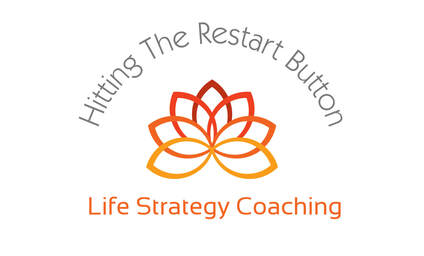|
If someone would have said to me at any time during the two years of my divorce, "Hey Elisa, you should practice gratitude - it will really have a positive impact on your life," I probably would have unleashed a mouthful of superlatives that would have blown their hair back.
While I was dealing daily with the nefarious bullying of my ex-husband, along with the fear, overwhelm and frustration of my post-divorce life, gratitude was the furthest thing from my mind. In fact, it took some time to realize how my life could have vastly improved during my divorce had I truly understood the scientific benefits of gratitude. So, at the risk of incurring your wrath, I'm going to tell you 6 reasons why you can and should incorporate gratitude practice into your daily life, no matter which stage of divorce you may be at. 1. Gratitude Improves Overall Health Research has shown that gratitude can improve general well-being, increase resilience, strengthen social relationships, and reduce stress and depression. In fact, it shows that just 15 minutes a day can enhance mental wellness. 2. Gratitude Changes Your Perspective When we change our perspective it can help us manage the stress of divorce and even avoid escalating situations that normally would trigger us. We turn our focus from all that is challenging and bad to that which is good. 3. Gratitude Brings The Future To Your Present When we’re grateful it’s usually for something we already have - meaning it’s already in our present reality. Logically speaking, if we feel grateful for that which we want as if it's already here, we are propelling ourselves into the future feeling we would have if we were already experiencing that reality. Such feelings resonate in our body and tell our brain that we are already there, because according to Dr. David R. Hamilton, "our brains can’t tell the difference between reality and our thoughts." In one study of two groups of individuals, one was asked one to play a specific set of keys on the piano while the other was told to imagine playing a set of keys. Under both circumstances, while being scanned, brain activity significantly increased in brain regions corresponding to motor movement of the hand. For those going through divorce, gratitude enables you to psychically begin living the life you want by being grateful for it as if it is already here. 4. Gratitude Raises Your Vibrational Frequency It is only in the very recent past that people are becoming aware of the importance of energy and the term "high vibration.". Everything in our world is made of energy and has a frequency. This includes objects, our bodies, thoughts and feelings. The faster something vibrates, the higher the frequency. Higher vibrational frequencies are associated with emotions that include joy, love, compassion, and gratitude, as opposed to lower vibrating emotions of fear anger and lack. When you practice gratitude, your vibrational frequency is being raised. Higher frequencies are also known to enable good health and happiness. So, for those going through divorce and feeling sad, fearful or in a state of lack, it is possible to train your mind and body to move into feelings of happiness and joy, by practicing gratitude. 5. Gratitude Changes Your Neural Pathways "Remember that behavior changes biology," according to the Mayo Clinic Health System. "Positive gestures benefit you by releasing oxytocin, a hormone that helps connect people. Some people call it the love hormone." Practicing gratitude also releases serotonin and dopamine, two “feel good” chemicals that positively impact mood, motivation, and willpower - as a result this can strengthen these neural pathways. The result is that over time, a conscious effort to practice gratitude can train the brain to focus on what’s going well as opposed to what’s going wrong. 6. Gratitude Attracts What You Want The Law of Attraction, in its simplest form says "like attracts like." Dr. Joe Dispenza teaches that we have the power to influence our reality by consciously directing our thoughts and emotions by "giving thanks for the things that you don't have yet." He asserts that "gratitude is the ultimate state of receivership." We have been trained to think that we should be grateful after we receive something and this puts us in a state of mind of always waiting and wanting. When we act as if and feel as if we have what we already want, the universe aligns with that feeling. And the law of attraction kicks in to literally bring us that for which we are grateful. This is the ultimate way of manifesting the life you want, and deserve post-divorce! - Elisa
0 Comments
Leave a Reply. |
ELISA
|
|
Elisa Valentino
HOLISTIC BEHAVIORAL PRACTITIONER DIVORCE & LIFE TRANSITION COACH SPIRITUAL LIGHTWORKER PUBLIC SPEAKER PODCAST HOST |
©2024 Hitting The Restart Button



 RSS Feed
RSS Feed
